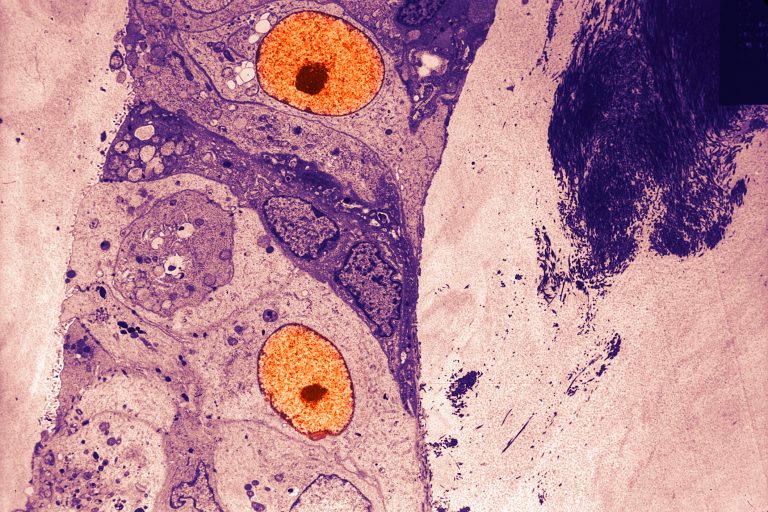
A molecular mechanism that leads to trastuzumab (Herceptin) resistance has been uncovered and suggests a new approach treatment. Increased signaling by IGF2/IRS1, an international team of scientists found, is a potential biomarker for poor response to the drug and further studies suggest that FOXO3a plays a role in this resistance and could be a new drug target to improve treatment response.
Their work is published online in Nature Communications.
“This work attempts to understand why some HER2-positive breast cancer patients do not benefit from treatment with Herceptin, which is a generally effective HER2-targeted therapy,” explains one of the team, Bolin Liu, MD, Professor of Genetics at LSU Health New Orleans’ School of Medicine and Stanley S. Scott Cancer Center.
Approved in 1998 for HER2-positive breast cancer, trastuzumab is one of the world’s top-selling drugs and garnered $2.9 billion in the U.S. alone in 2018. There is generic competition for the drug now, but a key hurdle to market expansion for any competitor in this market is the fact that not all HER2-positive patients respond to the drug, and the reason for this is still not known. And, as the authors write “Resistant tumors likely recur and metastasize to distant organs, which accounts for approximately 90% of cancer deaths. Many patients with advanced HER2-positive breast cancer ultimately develop brain metastasis.”
These researchers found increased signaling by IGF2/IRS1 (genes involved in regulating cell proliferation, growth, migration, differentiation and survival) in the HER2-positive breast cancer cells poorly responding to Herceptin. Further studies showed that disruption of a negative feedback loop formed by an important protein, FOXO3a, and several miRNAs that are controlled by FOXO3a causes abnormal activation of the IGF2/IRS1 signal, thereby leading to Herceptin resistance.
Specifically, they found that in trastuzumab-sensitive cells, FOXO3a regulates certain miRNAs to control IGF2 and IRS1 expression, retaining basic IGF2/IGF-1R/IRS1 signaling. This activity maintains expression of PPP3CB, a subunit of the serine/threonine-protein phosphatase 2B, to restrict FOXO3a phosphorylation (p-FOXO3a), inducing IGF2– and IRS1-targeting miRNAs.
In trastuzumab-resistant cells, the researchers found p-FOXO3a levels were elevated due to transcriptional suppression of PPP3CB. This activity disrupted the negative feedback inhibition loop formed by FOXO3a and the miRNAs, thereby upregulating IGF2 and IRS1. Further, they found significantly increased IGF2 in blood and IRS1 in the tumors of breast cancer patients with poor response to regimens that contained trastuzumab.
“Resistance to Herceptin frequently occurs and currently represents a major clinical challenge for successful treatment of HER2-positive breast cancer,” notes Liu. “Data presented in the study not only improve our understanding of the molecular mechanism through which IGF-1R signaling activation leads to Herceptin resistance, but also promote identification of precision therapies to reverse the resistance phenotype.”
HER2-positive breast cancer is a breast cancer subtype with amplified and/or overexpressed HER2 (or erbB2) gene, which is observed in approximately 20-25% of breast cancers and is signals a poor prognosis. Trastuzumab is a humanized anti-HER2 monoclonal antibody that is effective against early and metastatic HER2-positive breast cancers. The drug has dramatically improved the survival of such patients, but not all HER2-positive breast cancers respond to Herceptin-based regimens and there are no validated biomarkers for response to the drug.
“Our results may provide new avenues to identify useful biomarkers predictive for Herceptin efficacy and facilitate the development of novel approaches to enhance HER2-targeted therapy, thereby improving the survival of refractory breast cancer patients,” said Liu.













